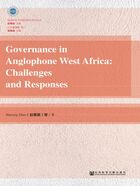
1.3 The Gambia
1.3.1 Governance Environment
The Gambia obtained self-government status in 1964, independence in 1965, and full republic status in 1970 as a constitutional democracy. The country experienced a military coup in 1994, which suspended the Constitution. Following a two-year period of military rule by decree, the country was returned to constitutional rule in 1997. Based on the 1997 Constitution, the president and the National Assembly are elected for a 5-year tenure. The Gambia holds elections every five years to elect her president. Senior politicians from the People’s Progressive Party (PPP) which were overthrown were barred from participating in politics until 2001. The PPP dominated the Gambian political scene for three decades and the last elections it conducted before it was overthrown was held in 1992.
After the coup, a presidential election was conducted in September 1996 which elected the retired Col. Yahya Jammeh who won the elections by 56% in January 1997, the first parliamentary elections after the coup was held and Alliance for Patriotic Reorientation and Construction (AFPRC) won thirty-three out of the forty-five seats in the country. After the ban on the PPP politicians was lifted in July 2001, four political parties were formed and contested the October 2001 presidential elections which the incumbent Yahya Jammeh won with 53 percent of the votes. The AFPRC still dominated the National Assembly in the legislative elections held in 2002 after the main opposition United Democratic Party (UDP) boycotted the legislative elections. President Yaya Jammeh ruled the country for 22 years until 2016 general elections when he lost power to Mr. Adama Barrow-the current president of the Gambia.